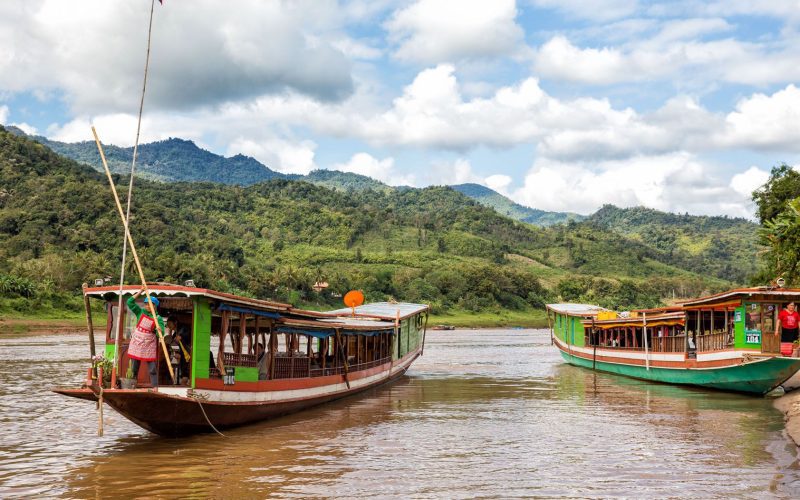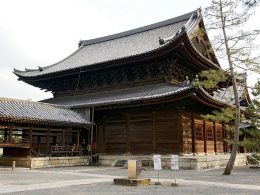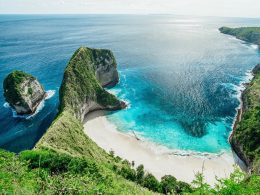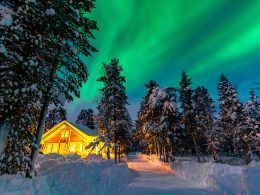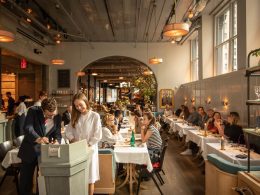Luang Prabang, a city nestled in the heart of Laos, is a remarkable convergence of cultural heritage and natural beauty. Renowned for its well-preserved architectural, religious, and cultural heritage, the city is also blessed with stunning natural landscapes that contribute to its unique charm. This article delves into the multifaceted aspects of Luang Prabang, exploring its historical significance, cultural richness, and the breathtaking natural beauty that surrounds it.
Historical Significance
Luang Prabang, often referred to as the jewel of Indochina, has a history that dates back over a thousand years. It was the capital of the first Lao kingdom, Lane Xang, which translates to “Land of a Million Elephants.” This ancient city became a UNESCO World Heritage Site in 1995, a testament to its historical and cultural significance.
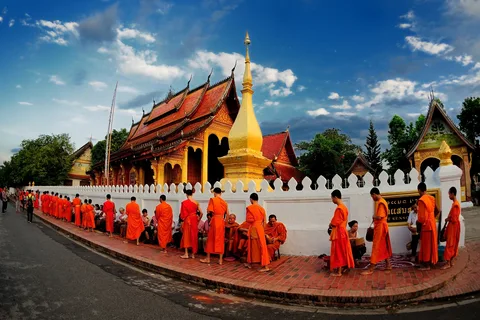
Architectural Marvels
The architectural landscape of Luang Prabang is a harmonious blend of traditional Lao wooden houses and European colonial architecture. The city is home to over 30 Buddhist temples, each a masterpiece of intricate design and craftsmanship. Wat Xieng Thong, one of the most important monasteries in Laos, is a prime example of traditional Lao architecture with its sweeping roofs and ornate decorations.
Religious and Cultural Practices
Buddhism plays a pivotal role in the daily life of Luang Prabang’s inhabitants. The city is famous for its morning alms-giving ceremony, where hundreds of monks in saffron robes walk through the streets to collect offerings from the local people. This ritual, known as Tak Bat, is a profound expression of the spiritual and cultural fabric of the community.
Festivals and Traditions
Luang Prabang is a hub of cultural festivities, with events such as the Lao New Year (Pi Mai) and the Festival of Lights (Lai Heua Fai) drawing thousands of visitors each year. These festivals are characterized by vibrant parades, traditional music, dance performances, and elaborate ceremonies that reflect the rich cultural heritage of the region.
Natural Beauty
The natural beauty of Luang Prabang is equally captivating. The city is surrounded by lush mountains, verdant forests, and the confluence of the Mekong and Nam Khan rivers. This picturesque setting provides a serene backdrop to the city’s cultural landmarks.
Kuang Si Waterfalls
One of the most famous natural attractions near Luang Prabang is the Kuang Si Waterfalls. This multi-tiered waterfall cascades into turquoise pools, offering a stunning sight and a refreshing escape for visitors. The surrounding area is also home to a bear sanctuary, adding an element of wildlife conservation to the natural beauty of the site.
Mount Phousi
Mount Phousi, a sacred hill in the center of Luang Prabang, offers panoramic views of the city and its surroundings. Climbing the 328 steps to the summit is a popular activity for both locals and tourists, especially during sunrise and sunset when the views are particularly breathtaking.
Mekong River
The mighty Mekong River, one of the longest rivers in the world, flows through Luang Prabang, providing a lifeline to the region. River cruises offer a unique perspective of the city’s natural beauty and cultural heritage, with stops at traditional villages, caves, and other points of interest along the way.
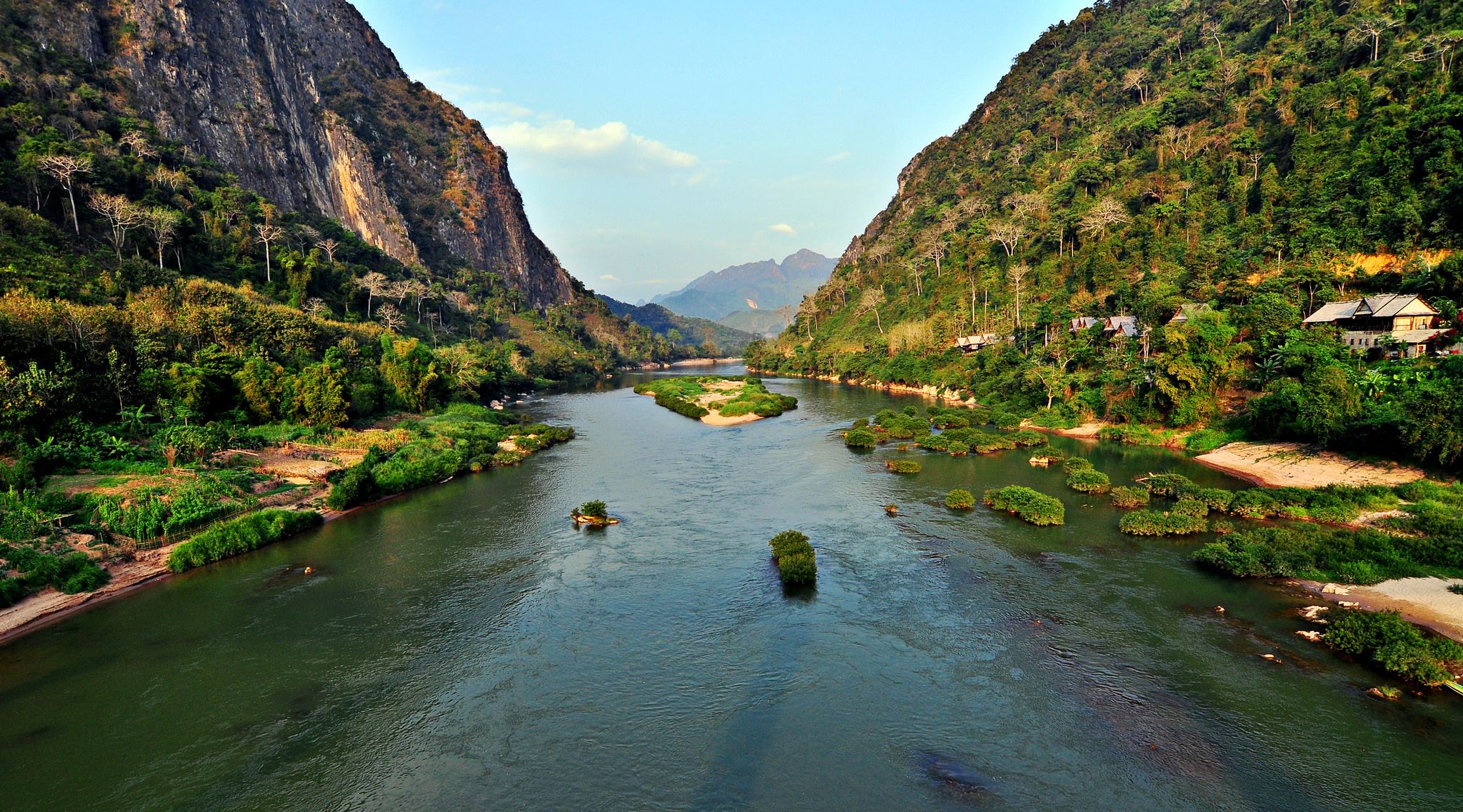
Conservation Efforts
Preserving the cultural heritage and natural beauty of Luang Prabang is of paramount importance. Numerous initiatives are in place to protect the city’s historical sites and natural environment. UNESCO, in collaboration with local authorities and international organizations, continues to work towards sustainable tourism practices that ensure the long-term preservation of this unique destination.
Conclusion
Luang Prabang, Laos, is a city where cultural heritage and natural beauty intertwine seamlessly. Its historical significance, architectural marvels, rich traditions, and stunning landscapes make it a unique and captivating destination. As efforts to preserve its cultural and natural treasures continue, Luang Prabang remains a testament to the enduring legacy of human creativity and the splendor of the natural world






